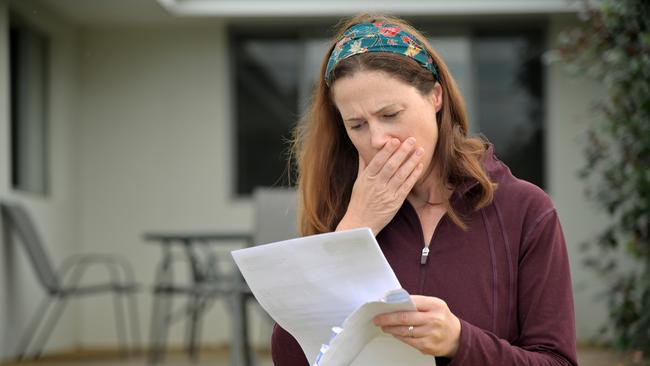Expenses that bite: experts share strategies to beat bill shock
Nobody likes nasty financial surprises, and many have been piling up as inflation rises. But there are ways to protect yourself.

National
Don't miss out on the headlines from National. Followed categories will be added to My News.
Electricity bills have seen some relief from billions of dollars of government rebates flowing to consumers this year, but plenty of other shocks are hurting households.
Insurance premiums continue to surge – up 14 per cent over the past 12 months – while gas, groceries, rents, health and education costs are all significantly higher than they were a year ago.
And while mortgage interest rates have been generally steady for a year, their 62 per cent rise since May 2022 has stripped many households of their savings buffers.
Money specialists say the electricity rebates have helped but are only temporary, and Australians should not be complacent about future financial shocks.

MyBudget founder and director Tammy Barton says people need long-term strategies to tackle council rates, car registration and insurance, and home and contents insurance.
“Insurance is one area where significant savings can be made,” Barton says.
“I recommend people get quotes from various providers to see if you are actually getting the best deal.
TOP TIPS
“Many of us could be unintentionally paying hundreds of dollars more than we need on our household expenses.”
Barton’s top tips are:
• Create detailed budgeting accounting for all expenses, and have regular check-ins;
• Set up automatic payments for regular bills;
• Shop around for better deals on utilities, insurance and other service providers;
• Create an emergency fund to handle shocks.
“Having a financial cushion can help you avoid getting yourself into financial strife,” she says. “Building good financial habits can take as little as a few weeks with the right structure and support.”
Compare the Market spokesman Chris Ford says his company’s research has found 92 per cent of Australians feel stressed about their finances regularly.
“That’s an alarming statistic and a huge number of families are feeling the strain,” he says.


“It’s important to know that while the CPI data looks to be heading in the right direction, everyday Australians will continue to feel the pinch for some time. Lower inflation doesn’t mean that prices are coming down.
“Rising costs are also impacting more than just savings accounts, with 56 per cent of Australians in a relationship admitting to arguing with their loved ones over money.”
BIG WORRIES
Ford says people worry most about unavoidable everyday expenses “like mortgage repayments, electricity and gas bills, rent and insurance”.
“Many households may be feeling a false sense of security, thanks to government energy rebates,” he says. “But it’s important to know these rebates won’t last forever.
“If you’re staying loyal to your current retailer, it could be time to compare.”
Ford says never auto-renew any insurance policy.
“Just like with any other household bill, it’s best for people to compare their options,” he says. “Another thing that people could be doing is to see if they’re able to get onto a better electricity plan. Not many people know that if they’ve been on a plan for over 12 months, they are likely not getting the most competitive rate.”
Homeowners with a “7” in front of their mortgage interest rate are likely to be on a non-competitive rate and could consider refinancing, Ford says.
Build better money habits
● Create a budget so you can plan your expenses and start saving;
● Set financial goals;
● Be mindful when spending money;
● Revisit all expenses and check if some discretionary payments are necessary;
●Ask for advice.
Source: MyBudget
More Coverage
Originally published as Expenses that bite: experts share strategies to beat bill shock





